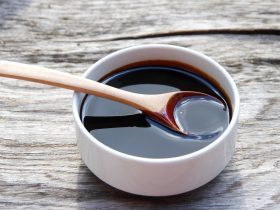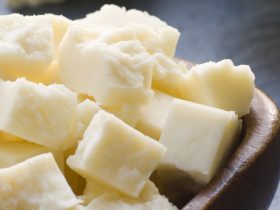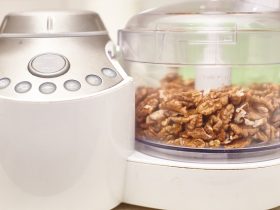Orange juice is an extremely common form of orange wherein its fluids are pressed or extracted in some way out of the orange fruit, occasionally further processed by removing any pulp that may also be extracted as the juice is removed from the fruit.
However, there are a variety of reasons why home chefs or restaurateurs would desire to alternate orange juice with another food product of similar taste, properties or even consistency.
While there are few exact substitutes for this particular juice, certain characteristics thereof may be replicated with other ingredients.
There are several ingredients that can replicate the taste, texture, acidity or even sugar content of orange juice for a variety of purposes in the culinary world. Whether you are using orange juice for baking, as a flavoring or even as a standalone drink.
Why Should You Substitute Orange Juice?
Making the decision to substitute orange juice can come about due to a variety of reasons, such as avoiding the particularly high sugar content of commercially processed orange juice, or avoiding the acidity found in citrus juices, of which may irritate a sensitive stomach and damage teeth enamel.

Apart from these factors, substitutes for orange juice may be used in the event a baked good requires it and it is unavailable. While orange juice in baked goods is relatively uncommon, certain niche recipes may call for the citrus juice, and as such may require substitution.
Baking Substitutes for Orange Juice
Orange juice is oftentimes incorporated into cakes and cookies in order to add a particular citrusy zest to its flavoring, apart from adding to the sugar content of the baked good itself.
While this is relatively uncommon and the majority of baked goods possess other forms of orange to add into their recipes, orange juice is still occasionally called for in certain situations. Fortunately, there are a multitude of alternatives for this purpose, and finding one is not difficult at all.
Orange Concentrate
While still technically the juice of an orange, orange concentrate is made from dehydrating the extracts from oranges so as to remove a certain percentage of water either through natural evaporation or through a catalyzed reaction such as heating or similar methods.
The benefit to using orange concentrate in baking is that the baker may decide their particular desired concentration of orange flavor simply by diluting the orange concentrate, allowing them to subtract or add the intensity of the flavoring at will.
Citric Acid
Oftentimes the only reason a baking recipe calls for orange juice is to use its relatively mild acidity to bolster the baked good’s flavor or to catalyze a reaction with the ingredients involved therein.
In both cases, citric acid may act as a suitable replacement, as citric acid’s own relative pH is similar to that of orange juice at 3.3 to 4.2 pH for the juice and 3 to 6 pH for the citric acid respectively.
This is all the more so applicable in cases wherein the acidity of orange juice is only meant to aid the flavor of another, more noticeable acidic taste, such as that of tomatoes in Mexican cuisine or in certain types of sauces wherein the taste of orange juice is not very distinct.
Pomelo Juice
While somewhat different from that of orange juice, the pomelo is in fact part of the same family of fruits as oranges, with both belonging to the citrus family.
Primarily, pomelo juice may be used as a substitute in baked goods that require a distinctly fruity and slightly acidic taste to act as a secondary note to the main body of flavor it may possess.
However, pomelo juice only possesses a relative pH between 3 to 3.4 and as such is not as effective as orange juice in catalyzing reactions via acidity, as the chemical acidity of pomelo juice is relatively ineffective at activating hydrolysis and transesterification of compounds present within the baking ingredients.
Drink Substitutes for Orange Juice
While the previous section of this article primarily focused on the baking substitutes for orange juice, this particular section will instead suggest possible alternatives to orange juice in the case of non-alcoholic beverages.
Whether consumed for its relatively high nutritional value or simply for its tangy yet sweet taste, orange juice may be substituted for several different kinds of juices or fluids that can replicate and approximate both of these characteristics.
Grapefruit Juice
Keep in mind that consuming grapefruit juice will interact with certain medications via the inhibition of specific intestinal enzymes, affecting the drug’s elimination and first pass effect, potentially causing lethal overdoses depending on the particular medication and the dosage of said medication.
As such, this substitute is not advisable for any individual taking medication.
However, grapefruit juice makes an excellent beverage alternative to orange juice both in nutritional benefit and taste owing to the similarity between the two.
Considering the fact that both grapefruits and oranges belong to the citrus family of plants, they both present significant levels of vitamin C as well as trace amounts of other vital nutrients, making grapefruit juice a perfect nutritional replacement.
Taste-wise, grapefruit juice is said to have a similarly sour taste in comparison to oranges with notable accents of sweetness, depending on the particular age of the grapefruit and if any sugar has been added.
Lemon Juice or Lemonade
The vast majority of consumers may find pure lemon juice unpleasant to drink as well as harmful to the enamel of their teeth, and as such it is often diluted somewhat, both to weaken its chemical acidity as well as to reduce the sourness of its flavor.
While oranges have only milligrams of difference in comparison to lemons when speaking of vitamin C, the fact that lemon juice is oftentimes diluted and used in sparing amounts means that not as many vitamins are imparted to the drinker, making lemon juice only a secondary choice for orange juice substitution if it is being consumed for vitamins.
Reconstituted Tamarind Paste or Tamarind Juice
While tamarind paste and its subsequent fruit are relatively uncommon in parts of the western world, it is an excellent replacement for orange juice as a beverage itself. This is due to the similarity between their tastes, especially if the tamarind is diluted to suitable concentrations and small amounts of sugar are added.
Additionally, tamarind paste is quite rich in minerals and trace amounts of vitamin B. However, in terms of vitamin C, the tamarind is quite a poor replacement for orange juice, and as such is not a very good supplemental vitamin substitute for the citrus fruit.
Alcoholic Beverage Related Orange Juice Substitutes
Considering the fact that orange juice is often used as a mixer or chaser in a variety of cocktails and similar alcoholic beverages, it is not uncommon for bar patrons and home chefs to desire a similar tasting alternative to their particular alcoholic mix.
Luckily, there are quite a few beverages that may act as an excellent substitute for orange juice, whether to replace its distinctly sour taste or its sweetness.
Lime Juice
Perhaps even more commonly used as a mixer than orange juice, lime juice is an excellent replacement for orange juice as its high acidity can help mask the taste of high-proof alcohol, especially that of the clear kind.
Much like lemon juice, lime juice must first be diluted and sugared prior to being used, as pure lime juice may be unpleasant to ingest and harmful to the enamel of the drinker’s teeth.
Coca-Cola
Though not what ordinarily comes to mind when searching for drinks possessing similarity to orange juice, Coca-cola is often used as a chaser or mixer in a variety of drinks.
Its signature carbonation and high sugar content achieve much the same effect as orange juice in the way that it may help mask the flavor of ethanol as well as complement a variety of other flavors that may be added to the drink mixture.
Grand Marnier
Fittingly, Grand Marnier is a certain brand of liqueur that often incorporates the distilled extracts of certain species of oranges, adding a distinctly citrusy undernote to its taste.
While Grand Marnier is generally used as a main ingredient in many mixed drinks, it may also act as a mixer itself, especially if diluted beforehand. With an alcohol proof of 80, Grand Marnier is an excellent way to bolster the strength of a drink while retaining a distinctly orange-fruit flavor.
Apple Cider
Apple cider is essentially the unprocessed version of apple juice wherein fine bits of apple flesh are left suspended in the fluid, giving it a somewhat thicker texture than that of distilled apple juice.
It is important not to confuse apple cider with what is otherwise termed “hard apple cider”, as ordinary apple cider is non-alcoholic and has not undergone the process of fermentation in any way.
In terms of orange juice substitutes when mixing alcoholic drinks, apple cider is somewhat sweeter than orange juice, with a distinctly less acidic taste, and as such may not be as good at masking the taste of high-proof alcohol as orange juice would be. Additionally, the somewhat thicker texture of apple cider may be unexpected by the drinker.
However, apple cider’s characteristically fruity taste and concentrated body of flavor is often found to be an excellent complement to many grain alcohols or other types of alcoholic beverages that have undergone aging.
References
1. Mizrahi, Shimon; Berk, Zeki (May 1970). “Physico-chemical characteristics of orange juice cloud”. Journal of the Science of Food and Agriculture.
2. Bridges, M. A., and Mattice, M.R. 1939.” Over two thousand estimations of the pH of representative foods.” American J. Digestive Diseases, 9:440-449
3. Fabricant, Florence (1990-10-31). “Apple Cider: It’s the Drink For Tonight”. The New York Times.
4. The Lancet Analytical Commission, “Report on the Food Products exhibited in the French and English Departments of the Universal Exhibition of Paris”, The Lancet





Hi, I'm Dom
Dom Eats was started to help other people fall in love with food. While cooking can feel intimidating, it doesn't have to be.